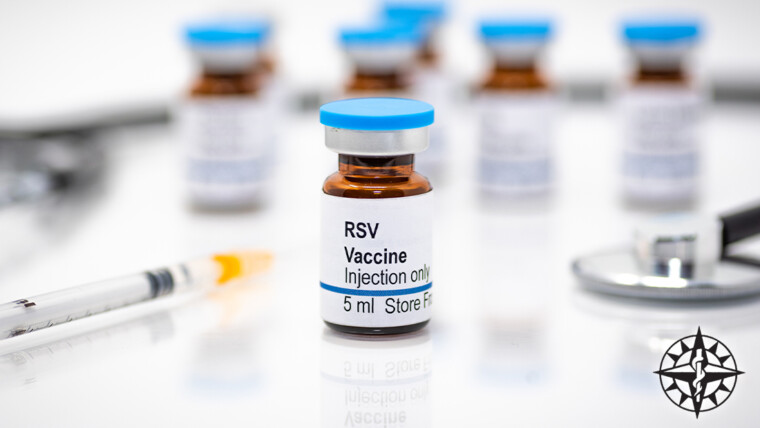Published on: October 5, 2021
It’s no secret that the coronavirus disease (COVID-19) pandemic has impacted everyone’s life in some way. While some have managed to avoid the disease, millions of people around the world have been infected. Throughout the pandemic, experts are gathering more information regarding the disease and its long-term effects.
Even though the outbreak began in 2019, COVID-19 is still a relatively new disease when it comes to research and data. As the COVID-19 outbreak approaches its two-year anniversary at the end of 2021, more and more people are getting vaccinated and will be able to take the appropriate booster shot to hopefully decrease future hospitalizations.
Since COVID-19 attacks the body differently depending on the person, the type and length of symptoms vary greatly. Although most people who have COVID-19 recover within a few weeks, experts are beginning to see more post-COVID-19 or “long haul” symptoms from those who are in the recovery stage.
In order to stay prepared, it is important to stay educated on COVID-19 and its potential “long haul” symptoms. By knowing the levels of COVID-19 illness and recovery stages, symptoms, length of effects, and potential treatments and prevention, you can keep yourself and those around you safe.
Levels of COVID-19 Illness and Recovery Stages
As scientists and doctors continue to learn more about the coronavirus disease, new data is showing the differences in levels of COVID-19 illness and recovery stages. While most cases are typically acute with possible ongoing symptoms, some report experiencing an additional “long COVID” stage. “Long-Hauler” COVID-19 symptoms are not only impacting those who were severely ill with the virus but including people who experienced mild symptoms. By understanding the length and type of symptoms from each stage, you can stay educated on the potential long-term impact of the virus.
- Acute COVID-19 involves mild symptoms lasting up to four weeks after infection.
- Ongoing Symptomatic COVID-19 occurs when symptoms continue for four to twelve weeks after infection. Typically, people who had moderate to severe symptoms in the acute phase are more likely to have ongoing symptoms.
- Post-COVID-19 occurs when symptoms continue for twelve weeks or more after the initial infection. These physical and mental symptoms can continue to develop even after the virus has left the body. People who experience these prolonged symptoms typically were in the ICU for breathing support during the virus, but some cases reported mild symptoms too. Some other interchangeable terms of post-COVID-19 are “post-acute sequelae of SARS-CoV-2 Infections (PASC)” or “long COVID”.
*Information sourced by Mark E Mikkelsen, MD, MSCE and Benjamin Abramoff, MD, MS and editors at UpToDate®
What are “Long-Hauler” Symptoms?
Similar to how there are COVID-19 symptoms, the post-COVID-19 stage comes with symptoms of its own. Read below for some of the “long-hauler” symptoms experts are finding to be the most common in the post-COVID-19 stage.
- Loss of Taste and/or Smell | One of the most recognizable and common symptoms of COVID-19, in general, is losing the sense of taste and/or smell. While some people will regain their senses after a few weeks, the majority will experience these “long-hauler” symptoms for up to a few months. Since there is no permanent neuron damage, the effects are only temporary, therefore, allowing the senses to return.
- Difficulty Breathing | After fighting a respiratory disease, the lungs are completely worn out. “Long-haulers” can experience symptoms like shortness of breath, coughing, and chest pains for a prolonged time. This can be due to potential lung scarring, pneumonia, or infection which makes it more difficult for the lungs to take in oxygen.
- Extreme Fatigue | Even after the virus has left the body, people will report feeling extremely fatigued. Whether the task is physically enduring or not, “long-haulers” will feel exhausted and drained by the simplest task. This is another common “long-hauler” symptom since the body is still in recovery.
- Cognitive Deficits | On account of extreme fatigue and potential long-term effects of COVID-19 on the brain, cognitive deficits are reported to be a common symptom in “long-haulers”. This creates a brain fog that can impair thinking and memory. It is important to see a doctor if cognitive deficits extend for a long period as it may be a sign of permanent organ damage.
- Increase in Heart Rate | COVID-19 can cause heart, vein, and artery damage on account of high inflammation in the body. This causes chest discomfort, heart palpitations, and an elevated heart rate. According to a study by the American College of Cardiology, 60% of COVID-19 survivors experienced heart inflammation in the post-COVID-19 stages.
- Decline in Mental Health | While the majority of “long-hauler” symptoms are physical, the impact of depression, anxiety, and post-traumatic stress disorder (PTSD) on COVID-19 survivors’ mental health is a serious matter. A recent study completed by researchers at Oxford University suggests that “one in three COVID-19 survivors received a neurological or psychiatric diagnosis within six months of infection.” Whether it be a result of the isolation, physical pain, stress, or trauma from ICU, post-COVID-19 stages can cause a decline in mental health.
At this point, experts are unsure of how long “long-hauler” symptoms will last. Since we are still learning more about COVID-19, it will take time and research to give an accurate answer. If you or someone you know is experiencing symptoms for a prolonged period, contact your primary care. For more information relating specifically to the coronavirus, visit the CDC’s website below.
Coronavirus Disease 2019 (COVID-19) | CDC
Video on How to Deal with “Long COVID”
While treatments directed for “long-hauler” symptoms are still in the making, experts can recommend ways to manage the symptoms. Watch the short video below to learn how you can be proactive in your recovery.
Prevention
Ideally, the best way to prevent COVID-19 “long-hauler” symptoms is to prevent infection. In order to protect yourself from infection it is recommended to do the following:
- Follow all CDC guidelines.
- Get Vaccinated.
- Don’t let your guard down – continue to wear a Face Mask in public areas, such as stores.
- Maintain a socially distanced 6-feet away from people in public areas.
- Practice good hygiene by washing your hands on a regular basis.
By continuing to follow the same recommendations used throughout the pandemic, you can prevent COVID-19 infection, thus, protecting yourself from any “long-hauler” symptoms.
“Dr. Mayer is very professional, knowledgeable and kind. Dr. Mayer listened to all my concerns and was empathetic and supportive with all my questions and issues. She made me feel much more at ease with my condition of having Covid Long Hauler symptoms and my treatment of it. I highly recommend Dr. Mayer.”
– Matthew Van Tilburg
About Infectious Disease Associates of Tampa Bay
Infectious Disease Associates of Tampa Bay (IDATB) provides high-quality healthcare services for patients in the Tampa Bay metro area. If you or someone who lives with you would like to test for infectious disease, then IDATB is here to help. With over 30 years of experience, IDATB has been treating Floridians with infectious diseases while providing an in-house lab for any necessary testing. If you have any questions or concerns about infectious diseases or COVID-19, call IDATB at 813-251-8444.





